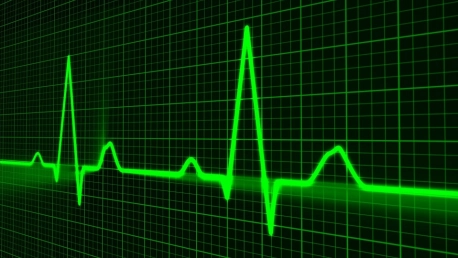The idea that losing weight is not entirely depending on the right diet has been on the mind of specialists for some years now. Various studies try to determine the precise link between all things digestion and metabolism -related and the gut microbiome. Are intestinal microbes responsible for slow metabolic processes or for the unnecessary storage of lipids in humans?
We might even speculate by cutting all the intricate relations in-between and just ask: is obesity a microbe? Does it function in a similar way to a disease? Is it constantly favored by a certain type of microbiome?
Humans and their symbiotic relationship with bacteria and microbes
It is common knowledge by now that humans coexist and even depend upon certain “good” bacteria that flourish on their skin and even inside their bodies. Any such microorganism forms an environment, together with other types of micro-creatures. Each one of them holds the potential of turning from “good” into “bad” when a certain optimal proportion is surpassed.
As Scientific American calls it, the gut microbiome is “an inner rain forest”. By comparing the intestinal bacteria in obese and lean people, researchers found out that even when the test subjects were twins, the lean individuals possessed a different bacterial environment. The discrepancies found in obese individuals do not automatically explain weight gain, but they represent a significant starting point.
Obesity and gut microbiome
The article mentioned above comments upon the study performed by Jeffrey Gordon and his colleagues of the Washington University in St. Louis. Apparently, when transferring gut microbiome between different individuals, the receivers take on the weight characteristics of the donors. The researchers tested this on mice. More precisely, they found gut organisms in obese subjects to be less developed, and lacking certain varieties of bacteria.
We may assume that although presenting certain minuses, the obese mice microbiome tended to maintain its characteristics, otherwise it couldn’t have modified the intestinal flora of lean mice. Certain bacteria probably inhibit the types of organisms that serve in maintaining a healthy weight balance. It’s not just about the presence/absence or the quantity, it is also about the proportion and equilibrium in these tiny yet flourishing universes.
Researchers are fascinated by the universe of bacteria and microbes within the human body. Due to humans developing a worrying resistance to known antibiotics, there is now a huge discussion concerning the way modern medicine will look. Antibiotics and their exacerbated usage managed to alter human bodies and create various side-effects.
Innovative medicine and medieval-looking therapies
In a perhaps surprising twist of events, treating the unbalanced microbiomes in modern humans might bring back medieval-looking therapies. The same study mentioned above managed to transfer gut bacteria between mice subjects via feces. Researchers have already transferred this odd method to human therapy. More precisely, human trials for weight-loss treatment investigated freeze-dried poop pills’ role in weight-loss.
The scientific name for this process is faecal microbiota transplantation or FMT. Although it may sound weird, it is but yesterday’s news in medical circles, and the promoters of this method are presenting their breakthroughs during medical events for a while now.
Alternative methods of fixing gut bacteria
A less shocking method of repairing the damages sustained by the gut microbiome consists of balancing the bacteria via special diets. Allegedly, this is how the damages happened in the first place. Since gut microbiomes can be inherited or transmitted by eating the same food and living in the same household, this starting point may lay with a person’s parent or even grandparents.
Nevertheless, there are specially tailored diets that try precisely to repair the gut ecosystem and restore an optimal bacterial balance. By consequence, the individual should see an improved health and better results in keeping his or her weight under control. It is worth mentioning that weight-loss diets that do not take the microbiome into consideration have been found to be less efficient, or even inefficient. The weight just comes back again and again, and the people in cause experience an “yo-yo” or “recurrent” phenomenon.
The gut bacteria may affect the hunger sensation. It surely affects digestion and the way food gets transformed into nutrients. All stomach processes, and further down the lower intestines’ processes are also regulated by bacteria/microbes, in collaboration with enzymes and hormonal factors.
Fasting, employed in various diets or detox therapies, can also allow a break for the internal microbiome processes. During this time, microorganisms can balance and readjust, re-establish new percentages in their presence. Some fight each other, others favor each other. The microscopic world housed inside the human body is as intricate, as it is yet mysterious.
Key takeaways in the gut microbiome – obesity relationship
Studies have found a clear link between weight issues and gut microbiome particularities.
Transfers between healthy (lean) organisms and weight-gain prone ones have resulted in clear improvements in the latest.
Modern medicine is considering alternatives to “hard” drugs, especially to antibiotics. These have become inefficient due to the appearance of super-bugs. Additionally, antibiotics affect gut bacteria regardless of their beneficial roles in digestion or other crucial metabolic processes.
The most resonant, perhaps even shocking derived therapeutic method of intervention consists of faecal microbiota transplantation. Less radical methods comprise specially tailored diets.
Instead of going through various weight-loss diets, those who need or wish to become leaner and healthier should consider improving their health via better, more natural foods and habits, moderate exercise. Breaking negative habits may be hard, but it works.
The well-being of gut microorganisms comes in pair with having a healthy body.









